Related Research Articles

The Norwegian Agency for Development Cooperation (Norad) is a directorate under the Norwegian Ministry of Foreign Affairs. In matters regarding Norway's International Climate and Forest Initiative (NICFI), Norad reports to the Norwegian Ministry of Climate and Environment.
Official development assistance (ODA) is a category used by the Development Assistance Committee (DAC) of the Organisation for Economic Co-operation and Development (OECD) to measure foreign aid. The DAC first adopted the concept in 1969. It is widely used as an indicator of international aid flow. It refers to material resources given by the governments of richer countries to promote the economic development of poorer countries and the welfare of their people. The donor government agency may disburse such resources to the government of the recipient country or through other organizations. Most ODA is in the form of grants, but some is measured as the concessional value in soft (low-interest) loans.
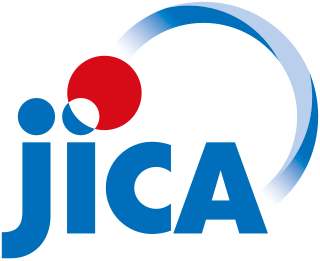
The Japan International Cooperation Agency is a governmental agency that delivers the bulk of Official Development Assistance (ODA) for the government of Japan. It is an chartered with assisting economic and social growth in developing countries and promoting international cooperation. According to the OECD, Japan's total official development assistance (ODA) increased in 2022 due to an increase in its bilateral lending, which includes support to Ukraine. ODA represented 0.39% of gross national income (GNI). [1] The OECD's Development Assistance Committee published a peer review of Japan's development cooperation in October 2020.[2] It was led by Dr. Shinichi Kitaoka, the former President of the International University of Japan, from 2015 to 2022. On 1 April 2022, Professor Akihiko Tanaka assumed the presidency of the Japan International Cooperation Agency (JICA) as the successor to Professor Shinichi Kataoka.[3]

The Federal Ministry for Economic Cooperation and Development, abbreviated BMZ, is a cabinet-level ministry of the Federal Republic of Germany. Its main office is at the former German Chancellery in Bonn with a second major office at the Europahaus in Berlin.

The Swiss Agency for Development and Cooperation (SDC) is an office-level agency in the federal administration of Switzerland, and a part of the Federal Department of Foreign Affairs. Together with other federal offices, SDC is responsible for overall coordination of Swiss international development activities and cooperation with Eastern Europe, as well as humanitarian aid.

The Organisation for Economic Co-operation and Development's (OECD) Development Assistance Committee (DAC) is a forum to discuss issues surrounding aid, development and poverty reduction in developing countries. It describes itself as being the "venue and voice" of the world's major donor countries.

The Japan Bank for International Cooperation, JBIC, is a Japanese public financial institution and export credit agency that was created on October 1, 1999, through the merger of the Japan Export-Import Bank (JEXIM) and the Overseas Economic Cooperation Fund (OECF).

The New Zealand Aid Programme is the New Zealand Government's international aid and development agency. The New Zealand Aid Programme is managed by the Pacific and Development Group in the New Zealand Ministry of Foreign Affairs and Trade (MFAT). Previously a semi-autonomous body known as the New Zealand Agency for International Development (NZAID), it was reintegrated back into MFAT as the International Development Group following a restructure in 2009. Its Māori name is Nga Hoe Tuputupu-mai-tawhiti – the paddles that bring growth from afar. The Head of the New Zealand Aid Programme is Jonathan Kings, a lawyer and public servant. According to the OECD, New Zealand’s total official development assistance (ODA) decreased in 2022 due to fewer disbursements within its three-year budget cycle and represented 0.23% of gross national income (GNI).
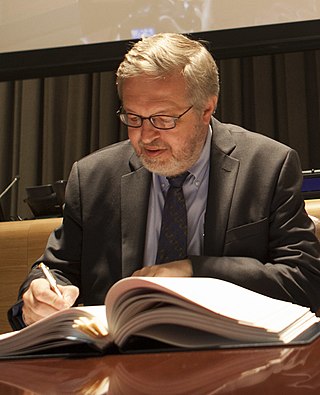
Carsten Staur is a Danish diplomat who has been chairing the Organisation for Economic Co-operation and Development’s Development Assistance Committee since 2023 He previously served as the Permanent Representative of Denmark to the Organisation for Economic Co-operation and Development in Paris. Prior to this he was Denmark's Permanent Representative to the United Nations in Geneva (2013-2018), and before that Permanent Representative to the United Nations in New York (2007-2013).
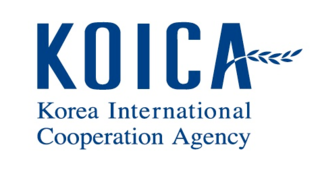
The Korea International Cooperation Agency was established in 1991 by the Ministry of Foreign Affairs of South Korea as a governmental organization for Official Development Assistance (ODA). KOICA's goal is to enhance the effectiveness of South Korea's grant aid programs for developing countries by implementing the government's grant aid and technical cooperation programs. KOICA is led by three-year-term president of the board who is appointed by the President upon the recommendation of Foreign Minister.
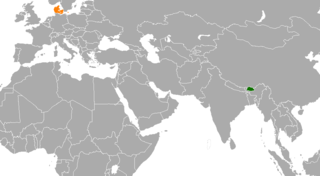
Bhutan–Denmark relations refers to the current and historical relations between Bhutan and Denmark. Denmark has a liaison office in Thimphu. Diplomatic relations were established in 1985. Denmark is the second-largest provider of development aid to Bhutan, after India.

Denmark–Nicaragua relations refers to the bilateral relationship between Denmark and Nicaragua. Denmark is accredited to Nicaragua from its embassy in Mexico City, Mexico. Nicaragua is accredited to Denmark from its embassy in Helsinki, Finland. The relations are described as good. Nicaragua is a Danish programme country since 1993.
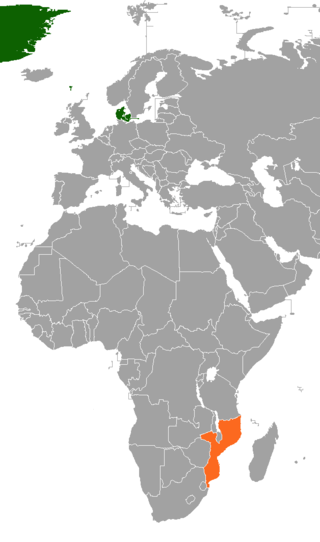
Denmark–Mozambique relations refers to the current and historical relations between Denmark and Mozambique. Denmark has an embassy in Maputo, and Mozambique is represented in Denmark, through its embassy in Stockholm, Sweden with an honorary consulate in Copenhagen. Diplomatic relations were established on 26 June 1975, but relations date back to before Mozambique achieved independence. The Danish Institute for Human Rights has worked with Mozambique since 1997. In 2000, Denmark signed an agreement with Finance Minister Luisa Diogo about implementation of mechanisms.

Benin–Denmark relations refers to the current and historical relations between Benin and Denmark. In 2007, the Danish development aid to Benin amounted 236 million DKK. Denmark is one of the largest aid donors to Benin and invested 60 million dollars in Benin in 2011. Neither country has a resident embassy.

Cambodia–Denmark relations refers to the historical and current relationship of Cambodia and Denmark.
The Portuguese Institute for Development Support is a development aid agency under the Portuguese Ministry for Foreign Affairs. Since January 2003, the institute is responsible for Portuguese official development assistance to developing countries.
Chinese foreign aid may be considered as both governmental (official) and private development aid and humanitarian aid originating from the People’s Republic of China.

Irish Aid is the Government of Ireland's official international development aid programme. Irish Aid is managed by the Development Co-Operation and Africa Division (DCAD) of the Department of Foreign Affairs (DFA). According to the OECD, Ireland’s total ODA increased in 2022, mostly due to higher in-donor refugee costs and higher contributions to international organisations. ODA represented 0.64% of gross national income (GNI). The Irish Aid programme is an integral part of Ireland's foreign policy.

Namibia–Spain relations are the bilateral and diplomatic relations between these two countries. Namibia is accredited to Spain from its embassy in Paris, France. Spain has an embassy in Windhoek.
References
- ↑ Senior Management
- ↑ "Denmark, OECD Development Co-operation Profiles" . Retrieved 15 September 2023.
- ↑ "About Danida". Archived from the original on 2019-09-01. Retrieved 2012-06-14.
- ↑ "Overview of DANIDA Scope of Activities". Archived from the original on 2017-08-24. Retrieved 2012-06-14.
- ↑ "DANIDA GMA COLLABORATION". Archived from the original on 2016-10-29. Retrieved 2013-12-10.
- ↑ "Denmark | Development Co-operation Profiles – Denmark | OECD iLibrary".
- ↑ "This is what we do" (in Danish). DANIDA. Archived from the original on 2 December 2015. Retrieved 1 January 2016.
- ↑ "Countries of Priority" (in Danish). DANIDA. Archived from the original on 4 March 2016. Retrieved 1 January 2016.
- ↑ "Countries and regions". Danida Open Aid. 2015. Retrieved 1 January 2016.
- ↑ "Sectors". Danida Open Aid. 2015. Retrieved 1 January 2016.
- ↑ "What are the results?" (in Danish). Danida. Retrieved 1 January 2016.
- ↑ "History of DANIDA". Archived from the original on 2019-09-03. Retrieved 2012-06-14.